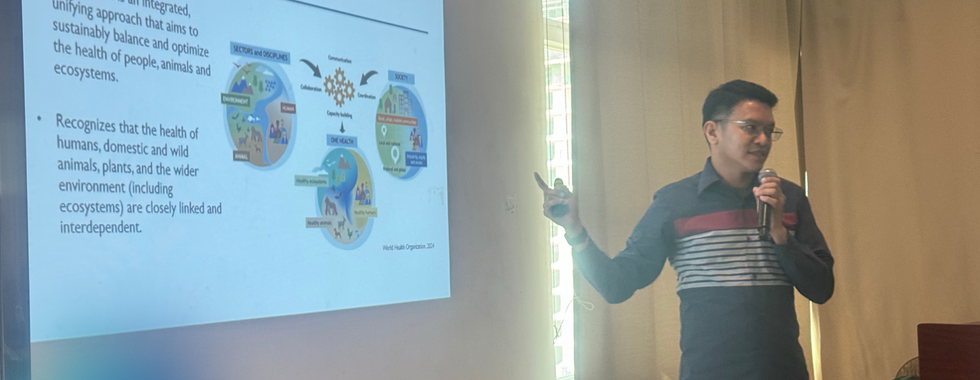USAID IDDS Project and PhilOHUN partner to enhance disease surveillance and response with specialized training on zoonotic diseases
- Phil OHUN
- Apr 26, 2024
- 1 min read
Updated: Apr 29, 2024
MARCH 19-21, 2024 — The United States Agency for International Development (USAID) Infectious Disease Detection and Surveillance (IDDS) Project joined forces with the Philippine One Health University Network (PhilOHUN) in the conduct of the One Health Training: Specimen Collection, Handling, Packaging and Transport for Selected Zoonotic Diseases in Angeles City and Pampanga State Agricultural University in Magalang, Pampanga.
The training aimed to strengthen disease detection and surveillance capabilities of the animal health workforce in the Philippines, focusing on zoonotic diseases particularly Henipavirus infection and Japanese encephalitis.
The three-day training concentrated on building the capacity of animal health professionals and paraprofessionals, including those working directly in the field and laboratory settings. Participants acquired essential skills in collecting, handling, packaging, and transporting biological specimens, which are critical for maintaining the integrity of samples and ensuring accurate disease diagnosis during disease investigation.
The program included practicum sessions that allowed participants to practice live animal sample collection under the supervision of experts, ensuring that they gain hands-on experience that will be vital in their fieldwork.
This practical aspect is designed to address the challenges faced by professionals in diagnosing and managing zoonotic diseases, which are a significant concern in the Philippines due to its rich biodiversity and the close interaction between its human and animal populations.
This training initiative is a part of the broader IDDS Project, which aims to enhance the country's surveillance systems through the One Health approach.
The training was expected to set a precedent for future collaborations and strengthen the network of trained personnel capable of tackling public health emergencies in the Philippines.






















































































Comments